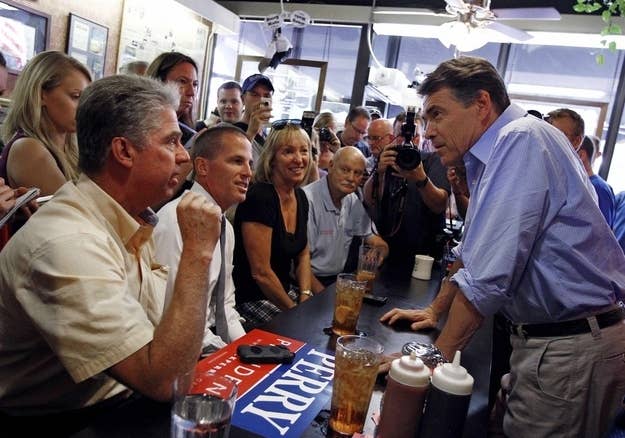
Rick Perry's presidential campaign had two phases: A swift and humiliating collapse; then a long and painful half-life. But Perry could have been a great candidate. And his story is a cautionary tale for talented politicians who would dabble in presidential politics.
Perry was the long-serving governor of a big state, one with a serious and talented local press corps, a combative culture, and elements of a real opposition party. He had governed as successful long-term governors typically do -- with a mixture of ideology and cronyism, charm and aggression. But unlike many big-state governors, he seems genuinely not to have been thinking about running for president.
The clearest sign: He published in late 2010 a book, "Fed Up," that wasn't the usually gauzy pre-presidential biography, but rather a combative conservatie tract and giant bulls-eye on his back. “I wouldn’t have written that book if I was going to run for the presidency of the United States,” he said when it came out.
Perry released his guru, Dave Carney, and a close aide, Rob Johnson, to work for Newt Gingrich. He seems to have spent little time thinking about what it would mean to be president. His only clear view on the federal government was that it should get out of Texas.
But Perry arrived in Iowa last August as the only serious challenger to Mitt Romney. He had one asset that he shared with the frontrunner -- the capacity to raise real, seven-figure, money fast, and the deep-pocketed patrons who could pour practically unlimited sums into his Super PAC, Make Us Great Again.
And he had one talent Romney lacked: A true, almost unmatched gift for retail politics. Patient, warm, and handsome, he has Bill Clinton's ability to work a room and to feed off a crowd's energy. His first appearance, at the Iowa State Fair, was a lesson to reporters in his endurance and magnetism. The next night, he wiped the floor in Waterloo with Michele Bachmann, effectively ending her campaign with his polite applause for the off-key speech with which she followed his engaging remarks.
Then came the debates, and the problem: Perry had evidently never thought much about running for president, and he wasn't nimble enough to fake it. He was widely labeled a dummy, but this isn't quite right: Politics isn't rocket science, but it does require doing your homework. Perry could have spent a couple of years as Barack Obama did: Using his elected office to conduct rolling seminars with policy experts; developing a years-long plan for national office; carefully picking the national issues with which to engage.
Instead, Perry got into the race on what amounts to a lark. He leaves it badly damaged, limping home to Texas where he'll struggle to regain the clout and swagger he projected six months ago.
